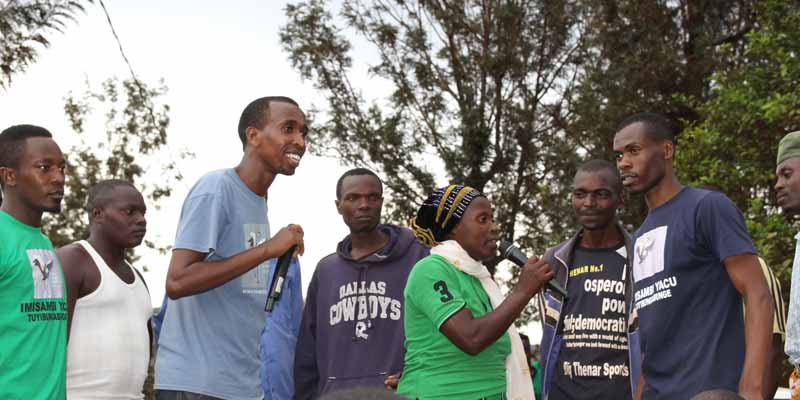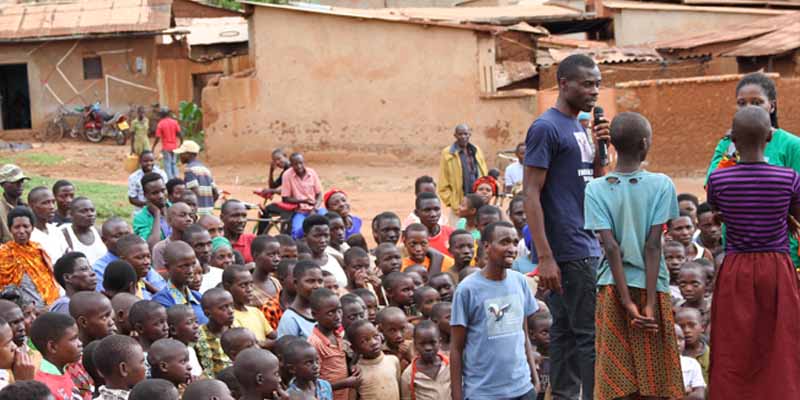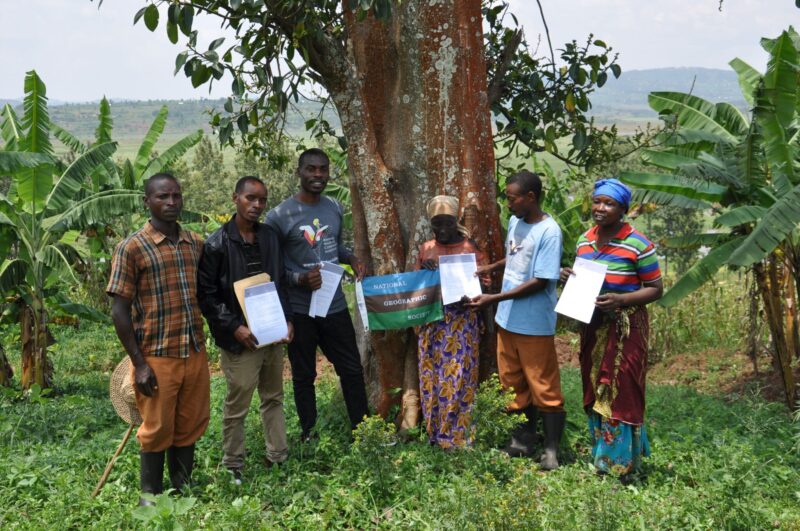WE WANT TO WORK IN COLLABORATION WITH LOCAL COMMUNITIES TO TAKE OWNERSHIP OVER THEIR ENVIRONMENT AND TAKE PRIDE IN RWANDA’S WILDLIFE.
We aim to slowly change attitudes and behaviours towards wildlife and their habitat.

We work closely with local communities around key crane habitats to make sure we genuinely understand the challenges they face. With high levels of poverty and competition for land, it is not surprising that many people take crane eggs to eat, are tempted to poach to get money for their family or use the marshland for grazing their cows or washing clothes.

Our outreach programmes focus on raising awareness, increasing law enforcement and providing opportunities for alternative sources of income as a deterrent from poaching.
COMMUNITY CONSERVATION CAMPAIGNS
Our community campaigns aim to increase knowledge about the need for conservation of Grey Crowned Cranes, the protection of habitat and to slowly change some of the traditional beliefs and practices that impact the crane population. The campaigns are strategically organised to take place in busy places, such as near the market on market days and target a range of people. Entertainment via big speakers is provided, with music, a stage and dancers which quickly attract attention and a large crowd – we have between 300 and 1000 people attending one event. We then deliver our key conservation messages and intersperse the messages with quizzes and competitions with prizes to keep people’s attention and interest.
We have also delivered campaigns in communities living nearby bat colonies, to raise awareness about bats and how to live safely with bats. The model we use can be adapted to give important messages about different wildlife and environmental concerns depending on the need.
COMMUNITY CONSERVATION AGREEMENTS
These agreements provide a negotiated benefit package for community members, who in return commit to conservation actions. We are currently working with community members and agricultural cooperatives who have farming activities in wetlands to protect breeding sites, and help us to provide information on habitat destruction or illegal activities. We also work with community members to protect important crane roost trees on their land. We’ve applied the same concept to working with communities and land owners to protect bat roost sites around the country.

COMMUNITY CONSERVATION CHAMPIONS
A network of 30 Community Conservation Champions have been recruited and trained and are working within their communities, at different biodiversity hotspots around the country. They conduct regular field visits around key wetland areas, record sightings of Grey Crowned Cranes and collaborate with land owners, farmers and community leaders to ensure the cranes are protected and key conservation messages are understood within communities. Since the team was established in 2018, they have organised 152 community events and reached 18,189 community members. Our model of community conservation is proving very successful and a great way of having continued presence in the community and to be able to respond quickly and efficiently to any conservation issues that arise. Read more here about one of success stories
OPPORTUNITIES FOR ECO-TOURISM
In the near future, eco-tourism opportunities will mean that local communities can benefit from living near by crane habitats. With birding being one of the top priorities of Rwanda’s tourism industry, there are many opportunities and will encourage communities to work together to protect the natural environment.
LOCAL LEADERS WORKSHOPS
840 LOCAL LEADERS TRAINED TO INCREASE LAW ENFORCEMENT AROUND KEY CRANE HABITATS
Over 840 local leaders and security personnel have been trained to increase law enforcement around key crane habitats. The annual workshops help us to raise awareness of the endangered status of Grey Crowned Cranes, the threats they face, the existing laws and the roles and responsibilities of local leaders in protecting cranes and their habitat. The workshops encourage collaboration with our teams of Marsh Rangers and Conservation Champions and are also a great opportunity to discuss different challenges that arise in the community connected to conservation and brainstorm potential solutions.